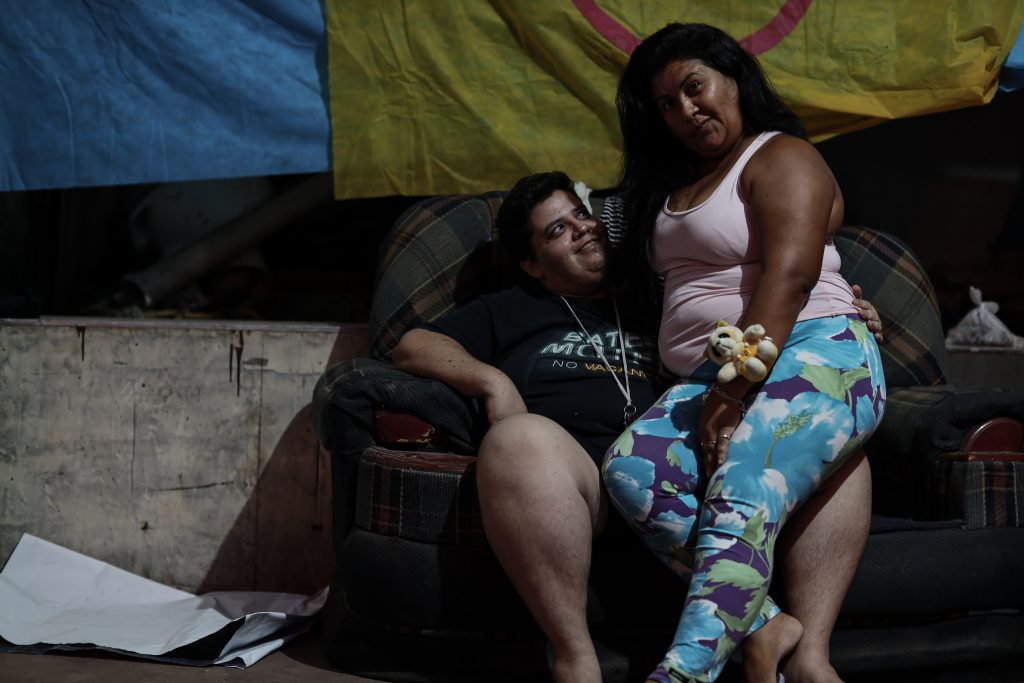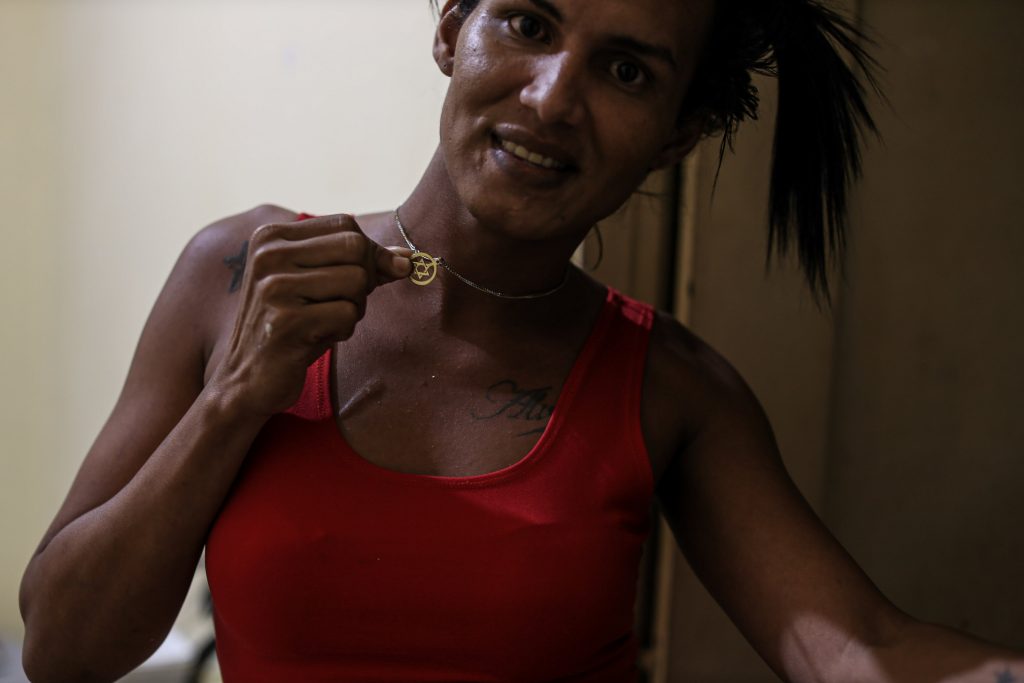Text by Kees Rottinghuis / Fotos by Jonathan Alpeyrie
RIO DE JANEIRO, BRAZIL – In Casa Nem a party is being prepared, so the house is bustling. Everybody is getting dressed or helping somebody else. But this is not your average party. Casa Nem is a home for LGBT in Rio: mainly trans people live there. So, bras are stuffed, and some extra make-up is applied. Together they can party safely.
The need for such a home in Brazil is evident. Although data is patchy, according to the National Association of Transvestites and Transsexuals, last year 163 trans people were killed in Brazil and trans people have an average life expectancy of just 35. Transgender Europe also ranks Brazil as the deadliest country for trans. That’s why Casa Nem exists.
https://vimeo.com/370654894
One of the residents of Casa Nem is Agatha. She moved in a few months ago after getting kicked out by her family. “I was living with my sister and her husband. But things got difficult.” Most transgender have complicated relationships with their families. Brazil is a religious country where being trans is not commonly accepted, especially in the lower classes of society. When parents don’t approve, they can kick out their children as early as thirteen. They can have nowhere to go or stay.
Casa Nem offers a place for those in need of one. It is a LGBT group that consists mainly of trans and together they squat a building in Copacabana. There are no rules for joining.
Contacting a resident or a knocking at the gate could get you in. Most join via social media because that is the best way to get into contact with others trans, recounts Dylan.
He was born as a female and in his teenage years, he was confused. “I started to have a virtual life to talk about my feelings. I thought I was the only one. But online I could talk about it.”

Common to many trans people, his family didn’t accept it when he told them he wanted to be a man. “My mom told me that her religion didn’t accept it. She gave me woman clothing. I felt like a Barbie.” His father went even further. “He wanted to teach me how to be a woman, so he started to hit me. Corrective abuse.” Dylan had to leave. “Eventually I need my place, but Casa Nem is safe.”
Gustavo also learned about Casa Nem through social media. He used to be a woman but now identifies as a man. His wife Mel also joined him, so they can live together at Casa Nem. “We met online, and she has just come over.” This is the first time they have seen each other. Proudly Gustavo shows off his ring. “She is driving me crazy with love, sex, and passion.”
Although Casa Nem is a safe haven it is certainly no paradise. They are squatting a desolate seven story-building, which is in bad shape.
When it rains, it leaks everywhere, and each room is filled with trash. With five floors each housing five apartments, that’s a lot of trash. There is no running water, so buckets are used from a tank downstairs.

The residents are cleaning up the place but there is a lot to do, and they don’t have the means to do it. Renovating the whole place will cost tens of thousands of US dollars, if not more. For trans people, it is already difficult to get by. In Casa Nem they rely on food donations.
The odds of finding a job are not good. Most trans in Brazil haven’t finished school and had to leave their homes at an early age. Many end up working in the informal sector.
Within the trans community, prostitution is also common. It can be the only way for trans people to earn some money. Casa Nem is no different.
There are about five in Casa Nem who work as prostitutes, but it could be more. Some are ashamed and don’t want others to know. Those working as prostitutes usually don’t take their clients to Casa Nem.
They go to nightclubs and pick up clients there, or they go onto the streets in the early mornings. Social media is also a way to get clients and stay in touch with them.
Paula lives in Casa Nem and works as a prostitute. She is a Venezuelan trans woman and had to move because she wasn’t safe. She went to Manaus and worked there as a prostitute. But trans were ‘disappearing’ there quickly and after losing four of her friends she decided she had to move again.

She found Casa Nem. Her Portuguese isn’t good, but Agatha is helping her: “I’m trying to learn Spanish, so we can talk to her.” That’s the sense of family that is present at Casa Nem. They look out for each other, but also do small things like buying make-up for each other.
But Casa Nem isn’t an easy place to live. Currently, about 28 LGBT people live there. Turnover within the house is high. A core sticks around but most come and go for a few months. Each resident has their problems, otherwise, they wouldn’t be living there.
This makes the atmosphere flammable. Furthermore, there is a lack of rules which make the house chaotic at best. This leads to many fights. Sometimes people even get kicked out back onto the streets.
All these fights create a lot of noise, which creates problems with the neighbors. But it’s not just the noise. The neighbors aren’t happy with Casa Nem being part of Copacabana. It doesn’t fit with the image. So, Casa Nem is being pushed out.
Currently, they are fighting in court to be able to stay in the building. The outcome is uncertain. They might have to go back onto the street again, back to the highest murder rate of trans people in the world.

